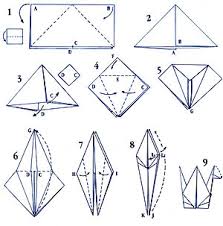I was at a gathering of colleagues from around the country recently. We meet once a year to catch up with each other and exchange news, both professional and personal. One member had lost his wife a few months before and spoke of the experience in detail, her courage and humor, their adult children’s return home to be with her, their very special time together and her inevitable and final decline. He was emotional, of course, as were we who listened, but he was able to tell the story with control – until he talked about their friends and neighbors, old and new, and how generous they were, how they visited and supported the family in such beautiful ways. Here, he broke down. It was too much, remembering their kindness. It touched him deeply and in a different way from the experience of profound grief that infused his every cell.
I mentioned this to him, and he agreed. There is something particularly touching about “strangers” (non-family) who feel our grief and make an effort to meet us there in that sad place. Of course his friends and neighbors were not strangers; they were close and caring people. But they were not family members; they did not have to be there. I can imagine they brought food, cards, books, flowers, condolences. But their most important gift was their love and compassion. Our conversation reminded him of a visit to Israel where he saw a memorial walkway to non-Jews who helped Jewish people during the holocaust. As a Jew, when he walked between the plaques and trees planted in honor of each rescuer he was moved to tears in this same way. These were people who reached out because it was the right thing to do, the human thing to do.

Several years ago we made a trip to Japan to visit our new in-laws. My son had married a woman from Hiroshima and we wanted to meet her family and learn a bit about her culture. Hiroshima was an emotional place for us New Mexicans, whose home state was the birthplace of the atomic bomb. Every cab driver, every waiter knew New Mexico; not one made us feel unwelcome or responsible for the devastation of their city in 1945. But we felt a special obligation to visit the Peace Park and pay our respects to the victims of the bomb. Needless to say it is a very emotional experience for any visitor, and for us it was especially powerful.
But our visit to the Museum where paper cranes are stored affected me at a deeper level. Here, I sobbed as I walked from floor to floor in the ancient bank building that had survived the blast. Each floor, each room was filled with folded origami paper cranes. They were all sizes, all colors, all materials. They hung in strings and bunches from the ceiling. They sat on shelves and in bins. They covered the windows filtering the daylight through the colors and patterns of the thousands of birds. There were millions of cranes; today ten years later there are millions more. The collection grows daily as people from all over the world – adults, children, young, old, rich, poor – send paper cranes of peace to the museum. I paused at a cluster of hanging cranes which had a letter attached. It was from a fourth grade class in Kansas, expressing their sadness at what happened to the people of Hiroshima and their hope for a peaceful world. I gasped and began to sob. These were “strangers.” They were not Japanese, had no relatives in Hiroshima and probably would never go to Japan, but they were moved by the story they heard, and probably by a committed and compassionate teacher, to learn to fold origami and make dozens of cranes for the people of Hiroshima. Each collection, string, bunch and box of cranes had the same origin. Strangers reaching out, struggling to understand, offering help.
Why is this so moving? Not necessarily more moving than other sources of caring, but a stranger can touch a chord in us, a powerful chord of caring that seems to move us in a particularly deep way.
I welcome your stories of the kindness of strangers.



Reading your blog was a lovely way to start my day! Thank you!
Thanks, Nancy. Hope you meet kind strangers along the way….
Hi Lucy. This post certainly echoed my own experience. When Elizabeth was dying at home nearly 10 years ago it was the continual visits and outpourings of love from her students and their parents that induced her to say, “Except for this one lousy detail, these have been a couple of the happiest months of my life.”
Ken
Wonderful, Ken. That says so much — about kindness, about you and especially about Elizabeth who was such a treasure. Thank you.
Hi Lucy,
The kindness of non-family is indeed so moving. This post express what I was trying to express to you and Roberto with your call last week. I felt like crying.
I thank-you again
love, judy
Judy – Thank you for saying this. It makes me think about empathy, which for us was the motivator — empathy for both your injured co-worker and for you. Maybe that is the secret ingredient that is so powerful. love,Lucy
This involves the intersection of grief and joy. It can be a most wonderful place to be for that moment, or extended moments, despite what we often think should be only a painful time. It is important to reach out and share in those moments, as was included in your moving stories. I wish those moments could happen more often around environmental issues, where strangers meet…a sharing of our feelings about both environmental and economic survival within our common home, Earth.
Thanks for broadening the concept. I agree that this intersection can happen at unexpected moments. There have been a few — not enough — times when I have been mediating and two traditional adversaries share a moment of understanding of the other’s grief, fear of loss, or desperate need. Often it’s the expression of that empathy that is so hard; the feeling may be there but the historical, social, economic divides run deep.
Lucy, your posts always move me! I have often had the pleasure and surprise of other humans making gestures of kindness to me when I have been in need. For myself, being a stranger in the world of many I find kindness is the easiest extension of myself I can offer. Often the smallest act becomes the tipping point in our hearts.
Thank you, Maria, for pointing out the value and reward of being the “kind stranger.” It does as much for the giver as the receiver.
Campaign Nonviolence is having a national conference in Santa Fe from August 6 (“Hiroshima Day”) to August 9 (“Nagasaki Day”). In conjunction with the conference, Campaign Nonviolence has included a campaign to collect 70,000 origami cranes. These cranes will be taken to Ashley Pond in Los Alamos, the birthplace of the bomb, for the commemoration of these events on both days: from 2pm to 4pm on Thursday, August 6 and from 11am to 2pm on Sunday, August 9. The public is strongly encouraged to attend.
Lucy, this is so You! I loved it. What it meant to me is the memory of my sister, Joan. She spent a lot of her life pointing to the civilizing of communities through public art, often as commerative presentation. Art works on a personal level, intellectually and especially emotionally. But it can be powerful on a community level among people who may not know each other but can share an emotional experience, as the wonderful paper cranes or the red poppies in London or Ai Wei Wei’s sunflower seeds did. You and Joan, two wonderful strong women who have “cilivized” my life. Love, Jane
To be in the same breath with Joan is such an honor. Thank you so much. And for the reminder about the power of public art to connect us.
Hi Lucy, Powerful commentary and images on the kindness of strangers. I remember how kind you were to me when I contacted you out of the blue one day.
Jeff
That was easy! You’re a wonderful and generous person.
Lovely blog, Lucy – thank you so much for sharing this. Gestures of kindness are a joyous gift for both the giver and receiver….
Thanks, Lori. Yes, it goes both ways.
I loved your story, Lucy, heartbreaking as it is. I’ll add mine, which is simpler but no less immediate. Three years ago I moved from New Mexico to northern New Hampshire to a town so small that it is still without a stoplight! I didn’t know one soul. Winter was coming and I had a cabin with a wood stove. I ordered the obligatory three cords of wood which were delivered to my yard in a giant heap. Then I had an unfortunate accident in a field with my dog and my leg was broken in three places. I was rescued, after a while (everyone who drove by thought I was waving hello!) by a couple of women (complete strangers to me) from the Calgary Baptist Church. Days later, out of the blue, their grown children, husbands and fellow parishioners showed up and stacked all my wood for the winter – the kindness of strangers indeed.
Good story, Myv. I like the fact that your new friends noticed what you needed and did it. So often we think we know what someone needs, and we do that, and completely miss the mark. Looking and listening can be a critical part of kindness.